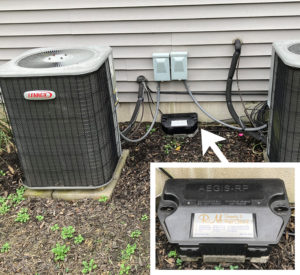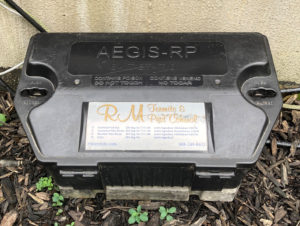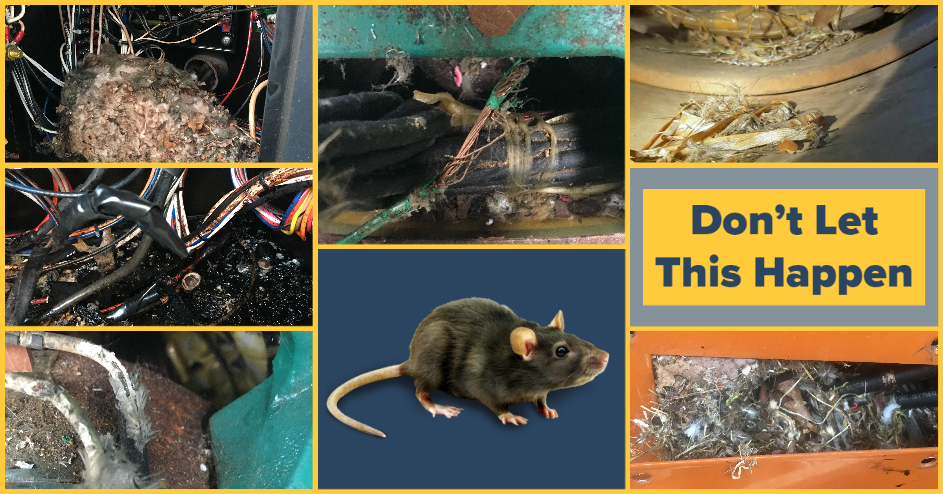What you need to know.
This time of the year, mice and other small rodents will seek winter shelter by making nests in protected areas away from the cold. The warm confines of your generator enclosure are inviting to these unwelcome guests.
Once inside, these pests will chew on wires, build nests, and wreck havoc to the sensitive parts that power your generator system.
But why do rodents chew on wires in the first place?
Perhaps it’s the paraffin wax used to lubricate the wires when extruded through the insulation jackets during manufacture, or because they like to sharpen their teeth on the hard cabling.
Either way, they’re making their winter homes in a place where you don’t want them. And the nests they build will kill your generator. Rodent excrement is corrosive to sensitive electronic components. Chewed wires cause expensive damage and prevent generator start-ups. And the materials they use to build their nests are light and dusty, clogging air filters and cooling systems that will choke engine airflow and cause overheating.
What’s the best way to remove rodents and keep them out of your generator enclosure?
In short, discouraging mice from taking refuge in your generator through exclusion is the first step.
According to Ralph Klass, Owner/President of RM Termite & Pest Control in Somerset, NJ, “One of many ways to exclude them from your generator is to place rodent bait stations outside, but near the enclosure.
“Attractants within these bait stations lure rodents into them before they enter your generator. These products will eliminate nesting inside your enclosure and eating the valuable wires and electronics of the generator.”
As a second line of defense, Klass also recommends placing small rodent stations inside the enclosure.
“Many other products are available to attract rodents away from your generator, including pheromone monitor boards placed inside the enclosure or even underneath the generator,” noted Klass.
We can all agree, excluding rodents from entering in the first place will ensure a long, healthy lifespan of your emergency power system and reduce costly, unnecessary repairs.
One final note, after discovery and elimination of an infestation, and even if the generator appears fine, rodents may have chewed enough of the wires to cause a future short circuit and power loss.
To be safe: After mitigating these pests, have your generator inspected and tested by a professional generator service technician to review your generator for proper operation.
Prepare now for eventual weather emergencies.

